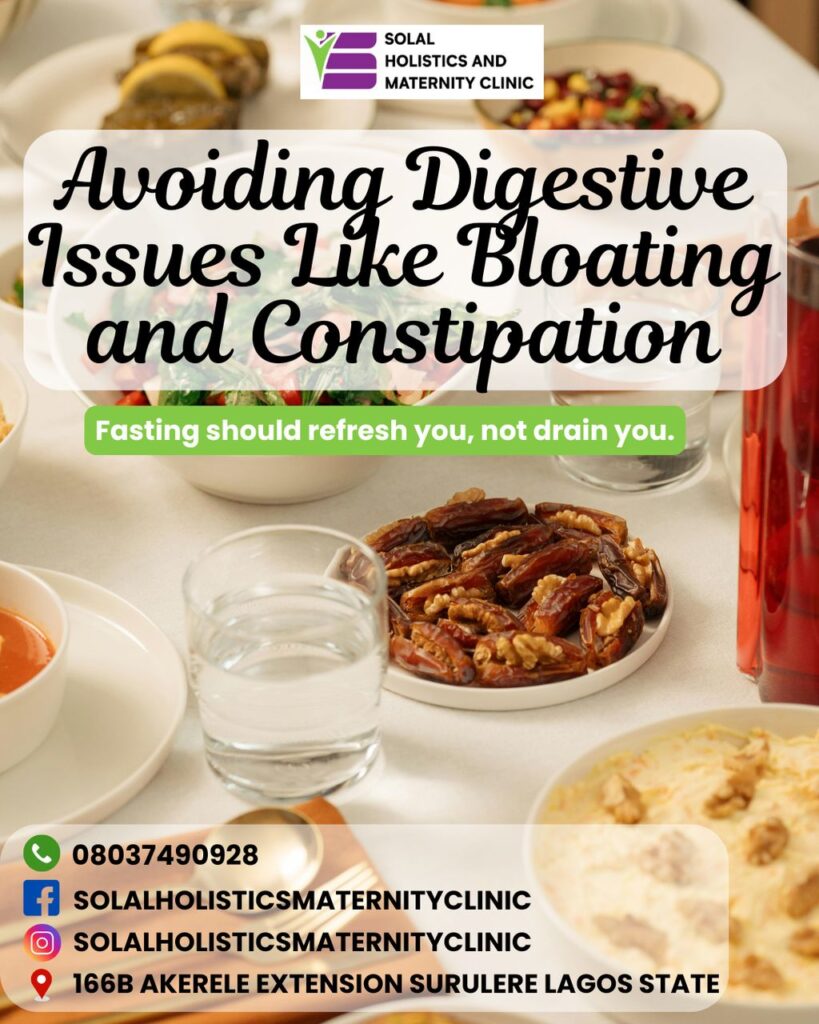Feeling Bloated or Heavy After Iftar? Here’s Why.
Eating too much, too fast after fasting can leave you bloated, sluggish, or constipated. Fasting should cleanse your body, not burden it.
How to Prevent Bloating & Indigestion
✔ Break your fast gently—start with water and dates, chew slowly, and avoid cold drinks.
✔ Eat gut-friendly foods—fiber-rich vegetables, whole grains, and probiotic foods (like yogurt) support digestion.
✔ Limit greasy, fried, and processed foods—they cause bloating and sluggish digestion.
✔ Watch what you drink—skip carbonated drinks and excessive caffeine; try herbal teas like ginger or peppermint.
✔ Stay active—a short walk after Iftar helps digestion; avoid lying down immediately.
Preventing Constipation
✔ Increase fiber intake—whole grains, veggies, and fruits keep digestion smooth.
✔ Stay hydrated—dehydration worsens constipation.
✔ Use natural digestive aids—dates, prunes, and flaxseeds support regular bowel movements.
✔ Don’t skip Suhoor—an empty stomach for too long slows digestion.
A healthy gut means an easier, more comfortable fast. Treat your stomach well, and you’ll feel light, refreshed, and energized this Ramadan!
